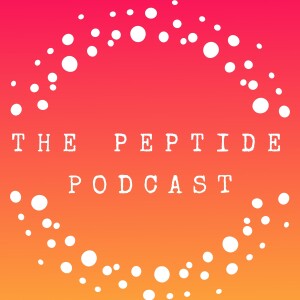
GLP-1 agonists, such as semaglutide (Wegovy), are popular medications for weight loss that work by mimicking the action of the GLP-1 hormone, which helps regulate appetite and blood sugar levels. While these medications can be very effective, some individuals might experience fluctuations in their appetite over time. If you've noticed that your appetite seems to be coming back even while on a GLP-1 agonist, you’re not alone. In this podcast, we’ll discuss why this might be happening and what you can do to manage it.
Why Appetite Might Return-
Adaptation Over Time
-
Body Adaptation: As you continue with the medication, your body might adapt to the drug's effects. This adaptation can sometimes lead to a gradual decrease in the medication's effectiveness in controlling hunger.
-
Tolerance Development: Similar to other medications, the body can sometimes develop a tolerance, which may reduce the appetite-suppressing effects of GLP-1 agonists.
-
-
Dietary and Lifestyle Factors
-
Caloric Deficit: If you’ve been eating fewer calories, your body may signal hunger more strongly as it tries to maintain its energy balance.
-
Nutrient Imbalance: Eating a diet that's lacking in essential nutrients can lead to increased hunger and cravings.
-
Dehydration: Symptoms of mild dehydration, such as headache, fatigue, lightheadedness, and difficulty concentrating, can mimic those of hunger.
-
You’re not getting enough sleep: Sleep is closely connected to hormonal balance, especially hormones that control hunger and fullness. When you’re sleep-deprived, leptin, which signals that you're full, drops, making you feel hungrier and more prone to overeating. Meanwhile, ghrelin, the hormone that boosts appetite, increases with lack of sleep, intensifying cravings and contributing to weight gain.
-
-
Emotional and Psychological Factors
-
Stress and Emotional Eating: High stress or emotional challenges can lead to changes in appetite and eating patterns, sometimes overriding the effects of appetite-regulating medications.
-
-
Hormonal Fluctuations
-
Hormonal Changes: Your body is pretty smart. It knows what to do to maintain itself. When you lose weight and reach a new lower weight, your body might push back. This happens because of ghrelin, the “hunger hormone”. When you lose weight, levels of ghrelin go up, making you hungry again.
-
-
Focus on Protein
-
Include Protein-Rich Foods: Protein can help keep you full longer by promoting satiety. Incorporate lean meats, beans, lentils, tofu, and Greek yogurt into your meals.
-
-
Eat Fiber-Rich Foods
-
Incorporate Fiber: Foods high in fiber, such as fruits, vegetables, whole grains, and legumes, can help you feel fuller for longer periods. Fiber slows down digestion and helps maintain stable blood sugar levels. But remember to start slow. Too much fiber can cause constipation.
-
-
Stay Hydrated
-
Drink Water: Sometimes thirst is mistaken for hunger. Drinking plenty of water throughout the day can help manage your appetite and prevent overeating. The general rule is to take your weight in pounds and divide the number in half. This is about how many ounces of water you should drink daily.
-
-
Monitor Portion Sizes
-
Control Portions: Eating smaller, balanced meals more frequently can help regulate hunger and prevent overeating. Be mindful of portion sizes and try to avoid large, infrequent meals.
-
-
Mindful Eating
-
Practice Mindfulness: Pay attention to your hunger cues and eat slowly. Mindful eating helps you recognize when you’re actually hungry and when you’ve had enough.
-
-
Regular Physical Activity
-
Exercise Regularly: Engaging in physical activity can help regulate your appetite and improve overall metabolism. Aim for a mix of cardiovascular, resistance, and flexibility exercises. This will help preserve lean muscle mass, which is important for maintaining a higher metabolic rate.
-
-
Manage Stress
-
Stress Reduction Techniques: To control emotional eating, incorporate stress-management practices into your routine, such as meditation, yoga, or deep-breathing exercises.
-
-
Consult with Your Healthcare Provider
-
Review Your Medication: If you’re consistently experiencing increased appetite despite following these strategies, discuss it with your healthcare provider. They might adjust your dosage or suggest an alternative treatment plan.
-
Thanks again for listening to The Peptide Podcast. We love having you as part of our community. If you love this podcast, please share it with your friends and family on social media, and have a happy, healthy week!
We're huge advocates of elevating your health game with nutrition, supplements, and vitamins. Whether it's a daily boost or targeted support, we trust and use Momentous products to supercharge our wellness journey.
Momentous only uses the highest-quality ingredients, and every single product is rigorously tested by independent third parties to ensure their products deliver on their promise to bring you the best supplements on the market.
More Episodes
 2023-11-23
2023-11-23
 2023-11-09
2023-11-09
 2023-10-26
2023-10-26
 2023-10-19
2023-10-19
 2023-10-12
2023-10-12
 2023-08-17
2023-08-17
 2023-08-03
2023-08-03
 2023-07-27
2023-07-27
 2023-07-06
2023-07-06
 2023-06-29
2023-06-29
Create your
podcast in
minutes
- Full-featured podcast site
- Unlimited storage and bandwidth
- Comprehensive podcast stats
- Distribute to Apple Podcasts, Spotify, and more
- Make money with your podcast
It is Free
- Privacy Policy
- Cookie Policy
- Terms of Use
- Consent Preferences
- Copyright © 2015-2024 Podbean.com






